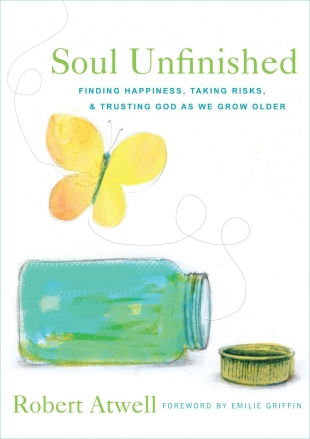Coping with loss
"If we are to discover at the end of our days that life is still worth living, then we have to know that we ourselves are worthwhile. Loneliness is a big problem, particularly in our cities with their anonymous streets and transitory populations. Older people easily become isolated. Remaining connected is a daily challenge. Rarely being physically touched can contribute to a sense of isolation. We all need affection, to be loved and affirmed. We give affection readily to children, but can forget to give it to older people. However, in the autumn of life we need it just as much as when we were young.
"One group of elderly and mainly housebound ladies has refused to surrender. Unable to be of practical service any longer, they have formed themselves into an 'emergency prayer network,' determined to radiate God's love to those around them. Those in need of prayer phone Doris, the convener, who alerts the next in the chain and so on. Not only does their concern generate a wave of supportive prayer across the community but, by their own admission, putting others at the center of their attention prevents them from becoming self-preoccupied. It keeps them in touch and breaks down a sense of isolation. Being the generation they are, they are also good at writing letters. In an age of e-mails, receiving a personal handwritten letter is an unusual event for many young people. Quite by accident, these old ladies have found a way of expressing their care across the generation gap, and it is warmly appreciated.
"For most of us the biggest challenge by far in our later years is maintaining confidence and self-esteem in the face of the loss of independence. Giving up your car and stopping driving is a watershed that most face at some point. Many delay making the decision out of fear of isolation. They sense it to be the thin edge of the wedge. For a minority, increasing frailty precipitates a move into sheltered housing. This can come as a relief, but it can be traumatic when it includes not only giving up your home, but moving to another part of the country in order to be near a son or daughter. This may make admirable sense to the rest of the family, but the loss not only of home, but the network of neighbors and friends as well can be distressing. Living in a residential community of people you have not chosen can be a bitter pill to swallow. Company is not the same thing as companionship.
"If Dag Hammarskjold provides a motto for later years, perhaps the words of the Risen Christ to Peter provide the text. 'When you were younger, you used to fasten your own belt and go wherever you wished. But when you grow old, you will stretch out your hands, and someone else will fasten a belt around you and take you where you do not wish to go' (John 21:18). How do we pray in these circumstances?"
